Pretoria – A South African delegation, led by President Jacob Zuma, is in talks with representatives from the European Union (EU), where ways to boost trade and investment are being discussed.
After doing his 67 minutes of service on Mandela Day in Danville, West of Pretoria — where he handed over houses to the poor — and visiting Madiba in hospital, Zuma welcomed the European Council President, Herman Van Rompuy, and EU Commission Head José Manuel Barroso for the 6th South Africa-European Union Summit at the Sefako Mapogo Makgatho Presidential Guesthouse.
The officials used their opening remarks to pay tribute to the world icon and former President Nelson Mandela, who is spending his birthday in hospital. A cake was cut and the birthday song was sung to mark the momentous occasion.
Zuma reported to the summit that Madiba, who turns 95 today, was steadily improving.
The summit is an opportunity to strengthen the strategic relations between the EU and South Africa, and to discuss a number of key issues, in particular the South Africa-EU strategic partnership; key peace and security topics in Africa and beyond, and also global governance, climate change, trade, development issues, and the relations between Africa and Europe as a whole, as set down in the joint Africa-EU strategy.
South Africa is counting on the summit, which it envisaged to be an open discussion, to determine how the EU can assist to advance the country’s objectives.
Given the challenges South Africa faces at the moment, President Zuma will peg South Africa’s engagements with Europe around a central theme, ‘Job Creation through Inward Investment’.
The theme attracts significant interest as growth and jobs are the heart of the National Development Plan (NDP), which aims to end poverty and reduce inequality in South Africa by 2030.
Zuma said the theme was timely and relevant, since the two sides shared similar challenges when it came to job creation. He said they would use the summit to look at how they could cooperate on many issues such as skills development, capacity building and sustainable development in line with the NDP.
Van Rompuy believed that in a fast-evolving world, the EU and South Africa could make a difference by working together.
“I look forward to sharing and discussing with our South African partners our respective strategies to accelerate and facilitate the creation of employment and growth,” he said.
Barroso underscored importance the SA-EU strategic partnership, saying they would “tackle difficult, sensitive topics in a friendly manner”.
Developing trade
The EU is SA’s biggest regional trading partner, and is a crucial source of foreign direct investment in the country. EU companies have invested R162 billion in about 350 manufacturing projects in the country for the past five years.
However, the relationship is less rosy on the trade front. Total trade with EU countries last year was R383 billion, compared to R419 billion in 2008. In 2008, SA exported R186 billion worth of goods, which fell to R122 billion in 2009.
Imports from the EU, however, have recovered to more than the levels which they reached in 2009. Imports were R233 billion in 2008, and last year they were R239 billion.
Despite the developments in the EU economy, Zuma said it was still relevant for the bloc to push South Africa’s development agenda. He said there was still “potential for further growth in trade and investment for the two”.
Barroso was also optimistic. He told the summit that despite the challenges, they were starting to see the light at the end of the tunnel.
“Recovery is timid and leaders shouldn’t be complacent.”
Citrus exports
There has been worry and tension on the trade front, as the EU was now threatening to ban imports of citrus (where five or more consignments) are afflicted by black spots on the rind of the peel.
The “surveillance upgrade” pertains to citrus black spot, a fungal disease caused by Guignardia citricarpa. It affects citrus plants throughout subtropical climates, causing a reduction in both fruit quantity and quality.
Zuma and his delegation will use the meeting to once again try to negotiate around the “upgraded surveillance”.
If implemented, Trade and Industry Minister Rob Davies cautioned on Tuesday during a briefing that this would greatly affect the South African citrus industry, which exports around 100 million cartons to 45 countries, which generates R6 billion of foreign exchange.
This would also lead to job loses, as the industry employs 40 000 permanent workers and 40 000 seasonal workers.
South Africa has been asking the EU for greater flexibility in this regard, but the EU has shown little willingness to respond to this request.
Economic partnership agreement deadline
Pretoria will also bring to the table the October 2014 deadline imposed by the EU for the conclusion of the economic partnership agreement (EPA) with the Southern African Development Community (SADC) countries. The EPA gives the countries preferential access for their agricultural and agro-processed products to EU markets.
At Tuesday’s briefing, Davies had warned that the threat of withdrawing preferential market access for products from SA and neighbouring countries such as Botswana, Namibia and Swaziland, if the EPA was not finalised, would have devastating socio-economic consequences, as it would lead to significant job losses.
Pretoria will also use the meeting to convey to the EU that Africa was one of the next growth frontiers, and that the continent was committing itself to industrialisation, which is anchored on strengthening regional integration.
At the end of the summit, an energy deal is expected to be signed.
Despite the two sides having differed on numerous issues in the past, the Makgobakgoba dialogue — as the talks between the two sides are known — has helped the parties to find each other on key matters.
This is visible in important areas such as the EU throwing its weight behind SA, SADC and the African Union on a number of African issues, including Zimbabwe, Madagascar and the Democratic Republic of Congo – which is indicative of a growing maturity of political relations. – SAnews.gov.za




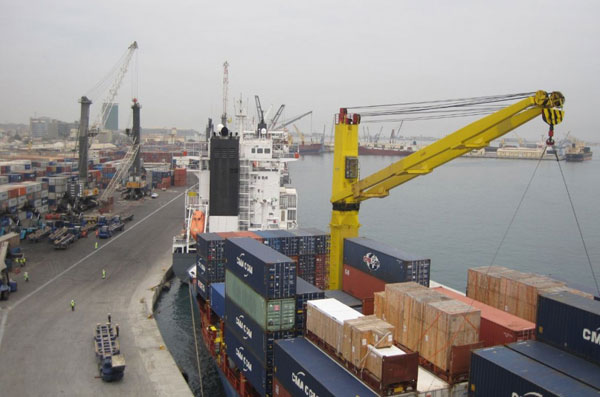
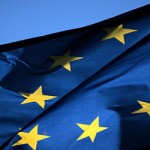
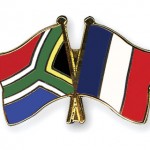
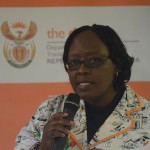
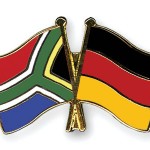


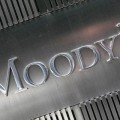
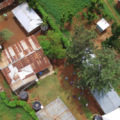
Speak Your Mind